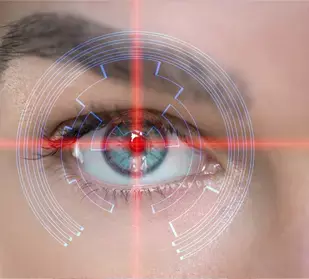- Home
- Medical news & Guidelines
- Anesthesiology
- Cardiology and CTVS
- Critical Care
- Dentistry
- Dermatology
- Diabetes and Endocrinology
- ENT
- Gastroenterology
- Medicine
- Nephrology
- Neurology
- Obstretics-Gynaecology
- Oncology
- Ophthalmology
- Orthopaedics
- Pediatrics-Neonatology
- Psychiatry
- Pulmonology
- Radiology
- Surgery
- Urology
- Laboratory Medicine
- Diet
- Nursing
- Paramedical
- Physiotherapy
- Health news
- Fact Check
- Bone Health Fact Check
- Brain Health Fact Check
- Cancer Related Fact Check
- Child Care Fact Check
- Dental and oral health fact check
- Diabetes and metabolic health fact check
- Diet and Nutrition Fact Check
- Eye and ENT Care Fact Check
- Fitness fact check
- Gut health fact check
- Heart health fact check
- Kidney health fact check
- Medical education fact check
- Men's health fact check
- Respiratory fact check
- Skin and hair care fact check
- Vaccine and Immunization fact check
- Women's health fact check
- AYUSH
- State News
- Andaman and Nicobar Islands
- Andhra Pradesh
- Arunachal Pradesh
- Assam
- Bihar
- Chandigarh
- Chattisgarh
- Dadra and Nagar Haveli
- Daman and Diu
- Delhi
- Goa
- Gujarat
- Haryana
- Himachal Pradesh
- Jammu & Kashmir
- Jharkhand
- Karnataka
- Kerala
- Ladakh
- Lakshadweep
- Madhya Pradesh
- Maharashtra
- Manipur
- Meghalaya
- Mizoram
- Nagaland
- Odisha
- Puducherry
- Punjab
- Rajasthan
- Sikkim
- Tamil Nadu
- Telangana
- Tripura
- Uttar Pradesh
- Uttrakhand
- West Bengal
- Medical Education
- Industry
HSV Keratitis after Femtosecond Laser Assisted Cataract Surgery and Astigmatic Keratotomy: JCRS

Reactivation HSV Keratitis may occur with use of Femtosecond Laser
Dr Timothy Chou from Renaissance School of Medicine at Stony Brook University, New York, USA and colleagues have reported a case of Herpes Simplex Virus Stromal Keratitis and Endothelitis after Femtosecond Laser Assisted Cataract Surgery (FLACS) and Laser Astigmatic Keratotomy.
The case report has been published in the Journal of Cataract and Refractive Surgery Online Case Reports.
A 72-year-old woman underwent uneventful FLACS in the right eye, combined with superonasal and inferotemporal FSAK incisions. Two weeks later, she developed pain and decreased vision in her operated eye. Slit lamp examination revealed ulceration and infiltration in the superonasal cornea, at one of the astigmatic keratotomy sites. There was associated dense fibrinous anterior chamber reaction. Empirical management with topical antibiotics and antifungals along with a low dose steroid was given. Over a period of a few weeks, the ulcer healed, but corneal inflammation and infiltration persisted.
The patient was referred to the Cornea Speciality Centre of the Stony Brook University for management of persistent keratitis. On examination, corrected distance visual acuity was 20/50. Corneal sensation was decreased. A thickened pannus was observed extending into the superonasal cornea but the epithelium was intact. This was associated with stromal thinning and Descemet folds radiating from the superonasal to central cornea. The folds were dotted with keratic precipitates. HSV Stromal Keratitis and Endothelitis was suspected based on clinical examination and unsuccessful response to topical fortified antibiotic and antifungal medications. Empirical management with topical steroids under the cover of oral anti-viral medication was started.
Over the course of the next 3 weeks, the patient improved. The corneal vessels regressed, the lipid infiltrate resorbed, and the radiating corneal folds resolved. The corrected distance visual acuity eventually improved to 20/25. The topical steroids were tapered and stopped but oral anti-viral medication was recommended to be continued, as prophylaxis against recurrence.
Herpes Simplex Keratitis (HSK) has been known to reactivate after excimer laser ablations of the cornea. The excimer laser emits radiation of 193 nm wavelength which is in the UV spectrum. UV radiation seems to trigger HSV reactivation. Femtosecond Laser (FSL) radiation however is emitted in the near-infrared wavelength and it is unclear whether HSK activation after FSL is related to the laser wavelength.
The authors speculate that the penetration of the photo disruptive FSL energy deep into the corneal stroma during the creation of an astigmatic keratotomy incision may damage stromal nerve endings just as with excimer laser. Postoperative inflammation with prostaglandin release associated with Femtosecond Laser Assisted Cataract Surgery and topical corticosteroid use may have additionally triggered the HSK reactivation in the patient.
The authors wish to highlight the fact that the patient had no previous history of HSK but still developed reactivation keratitis after FLACS and FLAK.
"We suggest that patients undergoing FLACS or FLAK be counselled preoperatively about possible reactivation of HSK. Surgeons might wish to consider systemic antiviral prophylaxis or even avoid use of the FSL altogether in patients with actual history of HSK." conclude the authors.
For further reading, please click the link
Dr Sudha Seetharam is an Ophthalmologist practising at Laxmi Eye Institute, Maharashtra. She has received her MBBS from Medical College, Kolkata and M.S (Ophthalmology) from Maulana Azad Medical College, New Delhi. Writing and teaching are her passions. She is the author of the book “Self-assessment and Review of Ophthalmology” meant for MBBS students preparing for NEET PG Medical Entrance examination. She is a faculty of Ophthalmology at various teaching institutes and online platforms which train students for NEET PG Medical Entrance examination. She has also authored the book “Beyond Medicine- Life Lessons Learnt as a Doctor” which describes the real life experiences of a doctor during internship in a government hospital.
Dr Kamal Kant Kohli-MBBS, DTCD- a chest specialist with more than 30 years of practice and a flair for writing clinical articles, Dr Kamal Kant Kohli joined Medical Dialogues as a Chief Editor of Medical News. Besides writing articles, as an editor, he proofreads and verifies all the medical content published on Medical Dialogues including those coming from journals, studies,medical conferences,guidelines etc. Email: drkohli@medicaldialogues.in. Contact no. 011-43720751


